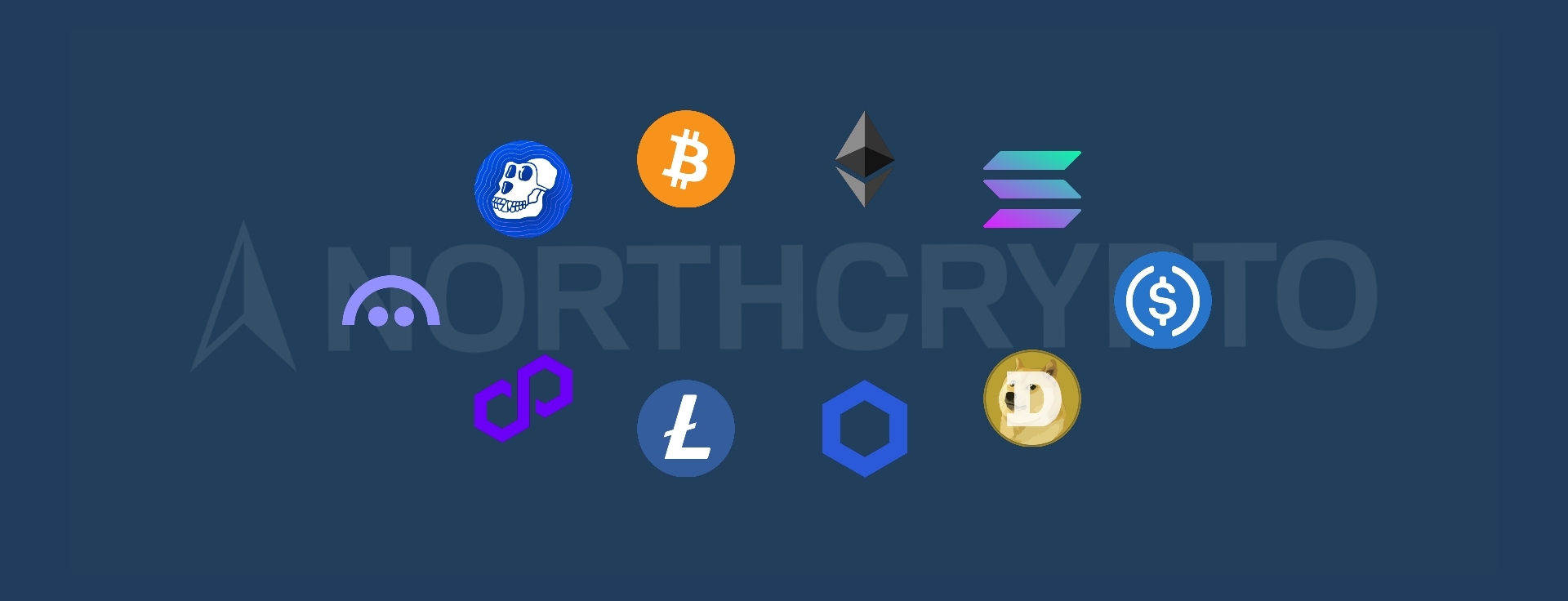Cryptocurrency Wallets
Investing
The number of cryptocurrency wallets has increased rapidly in recent years alongside the growing popularity of cryptocurrencies. There are now hundreds of different cryptocurrency wallets available. This article discusses what a private key is and the differences between various types of cryptocurrency wallets.
Private Keys and Their Management
A private key is a central term when discussing the storage of cryptocurrencies. Private keys are used to prove ownership of cryptocurrencies and thus, for example, to transfer cryptocurrencies. You can delve deeper into the technology related to private keys and cryptocurrency transactions by reading our Cryptography blog text. In all the wallet types presented in this article, the private key is usually under the user's control. However, if cryptocurrencies are stored on a cryptocurrency marketplace, the private keys are typically not under the user's control. Thus, the management of private keys is the most significant difference when storing cryptocurrency on a marketplace, such as Northcrypto, or in the cryptocurrency wallets introduced in this article.
The management of private keys can be seen as a positive aspect by some and a challenge by others, as it means a great responsibility for the user. When the user controls the private keys themselves, the cryptocurrencies are entirely under the user's control and responsibility. This also means that if the user makes any kind of mistake, the cryptocurrencies can be lost permanently. Since the user manages their own cryptocurrencies, problems cannot often be corrected by contacting the potential customer service of the cryptocurrency wallet provider. However, a positive aspect of this responsibility is that the user does not have to trust any third party for the storage of their cryptocurrencies.
The ability to manage private keys is unique in the digital world. It gives the user the ability to own and use cryptocurrencies without having to trust any third party. In this respect, cryptocurrencies differ significantly from, for example, the euro in digital form. It is not possible to truly own euros in digital form, as euros must be stored in a bank or some form of digital wallet, which is always managed by a third party.
When discussing the management of private keys, a significant component is the so-called seed phrase. The seed phrase is typically a list of 12 or 24 words that is generated for the user when creating a cryptocurrency wallet. Storing and keeping this list safe is extremely important, as the seed phrase gives access to the private keys of the wallet and therefore to the wallet's cryptocurrencies. The seed phrase serves as a recovery method if the wallet cannot be accessed normally.
Hardware Wallet
A hardware wallet, also known as a cold wallet, is a wallet in which the private key authorizing the use of cryptocurrencies is stored offline, i.e., the device is not connected to the internet. In practice, a hardware wallet is often a device resembling a USB stick that can be connected to a computer via a USB port. A hardware wallet is generally considered the most secure wallet for long-term storage of cryptocurrencies.
The absolute strength of a hardware wallet is the reduced likelihood of viruses and other online risks. A hardware wallet is usually recommended for users who have some technical expertise and understanding of cryptocurrency transactions. Additionally, purchasing a hardware wallet is only sensible if the price of a hardware wallet, costing around 50-200 euros, is not significant compared to the value of the user's cryptocurrency holdings.
Several models of hardware wallets from various manufacturers have emerged in recent years. Among hardware wallet manufacturers, Ledger and Trezor have best established their position within the broader cryptocurrency community over the years.
Software Wallets
A software wallet is a general term that covers all cryptocurrency wallets in the form of some software. However, there are very different types of software wallets, and they can be categorized, for example, into browser wallets, mobile wallets, and desktop wallets. The differences between these types are often not very significant, and many software wallets can be available in both browser wallet and mobile wallet forms. Among software wallets, desktop wallets were the most popular type of cryptocurrency wallet in the early 2010s, but their relative popularity has been in steady decline due to the benefits offered by other wallet types. So, next, let's go through what browser and mobile wallets, which have grown in popularity in recent years, are.
Browser Wallet
A browser wallet is a wallet in the form of a browser extension. The absolute strength of a browser wallet is its ability to enable the use of DeFi, or decentralized financial services. Most DeFi service users utilize these services with a browser wallet. Additionally, the advantage of a browser wallet is that practically all browser wallets and their use are free. The weaknesses of a browser wallet, compared to a hardware wallet, include online risks and a greater possibility of user errors, for example, when using DeFi services. However, the security of several browser wallets can be enhanced by connecting them to a hardware wallet.
The popularity of browser wallets has grown rapidly in recent years along with the rise in the popularity of DeFi. Browser wallets have also evolved, and new browser wallets have appeared on the market at an accelerating pace. Currently, some of the most popular browser wallets include Metamask, spesializing in Ethereum-based platforms, and Phantom that is popular especially among Solana users.
Mobile Wallet
A mobile wallet is a wallet in the form of a smartphone application. The advantage of a mobile wallet is that the wallet is always easily accessible, making it very convenient to use cryptocurrencies for various purposes. Additionally, practically all mobile wallets are free, just like browser wallets. Almost all mobile wallets also allow reading QR codes, which makes sending and receiving cryptocurrencies as well as paying with cryptocurrencies easier. Many mobile wallets also provide easy access to DeFi services directly through the built-in browser of the mobile wallet.
The downside of a mobile wallet, compared to a hardware wallet, is weaker security due to online risks and the risk of device loss. Therefore, it is not recommended to store a significant amount of cryptocurrencies in mobile wallets. Additionally, if using DeFi services through a mobile wallet, there is always a risk of user errors. Popular mobile wallets include Trust Wallet and Exodus, as well as mobile versions of the previously mentioned browser wallets, Metamask and Phantom.
Summary
As the popularity of cryptocurrencies grows, more and more advanced cryptocurrency wallets have also appeared on the market. There are many different ways to store cryptocurrencies, and there is a suitable option for every cryptocurrency investor. First, you should consider whether you want to manage the private keys yourself and, based on this, choose between a cryptocurrency marketplace and your own cryptocurrency wallet. The choice of cryptocurrency wallet type is influenced by the size of the cryptocurrency holdings and whether the intention is to use cryptocurrencies in DeFi services or to store them for the long term.
Ville Viitaharju
Cryptocurrency specialist
Last updated: 28.05.2024 15:30



